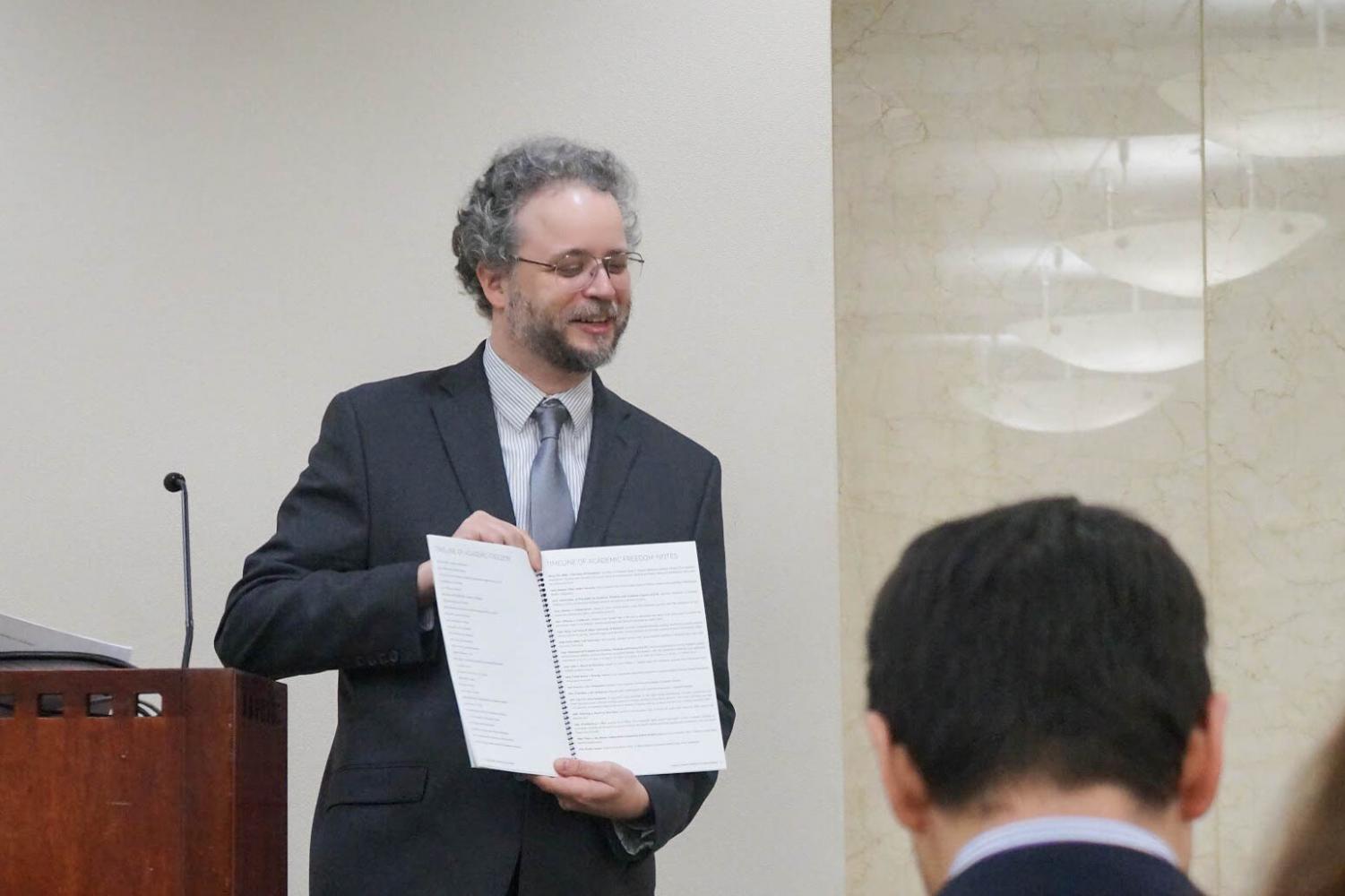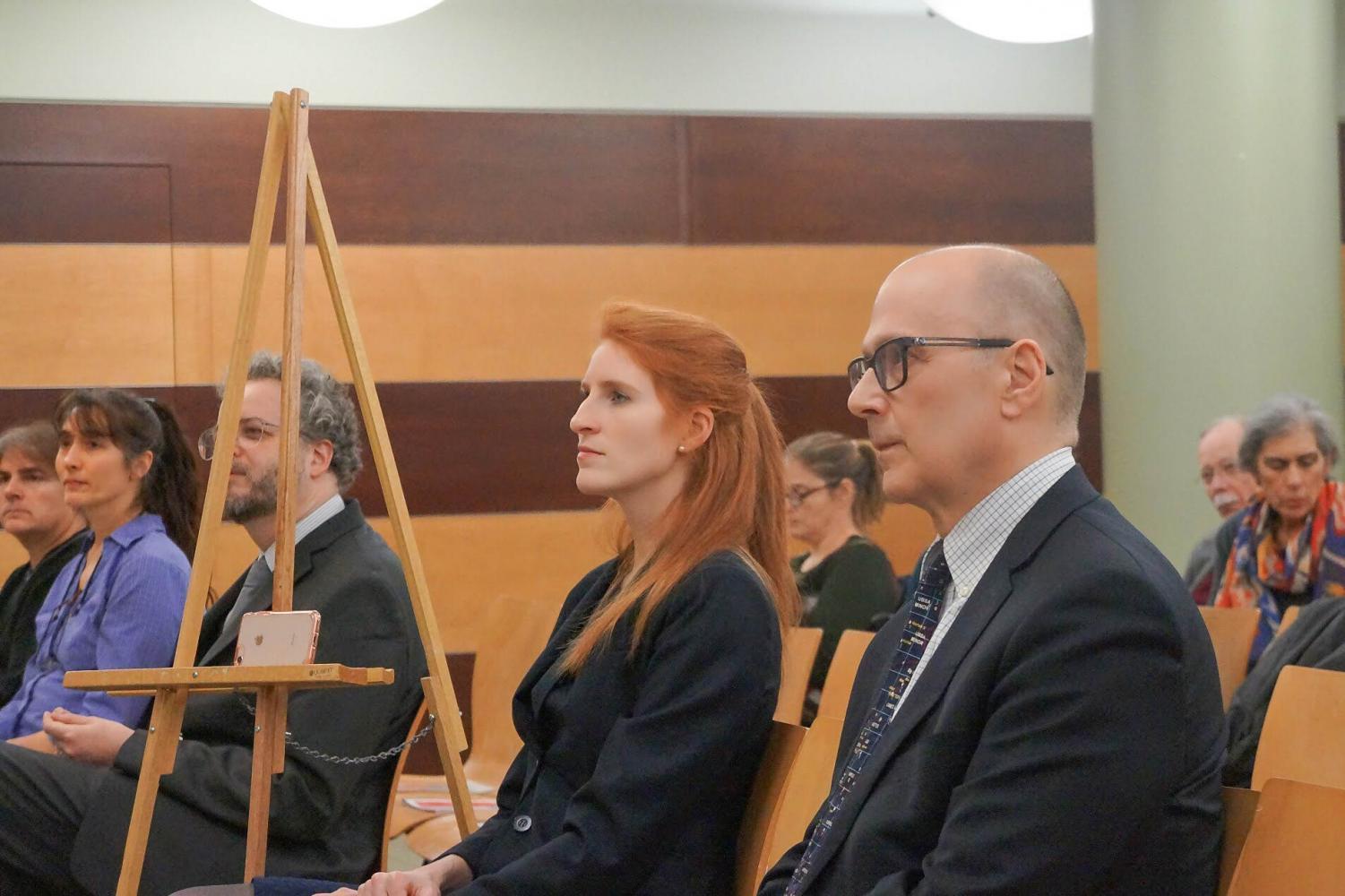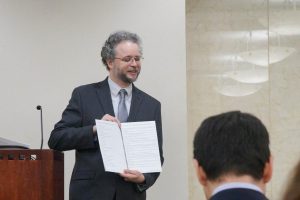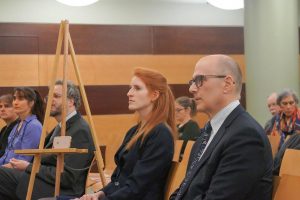National Association of Scholars Holds Event on Academic Freedom
February 6, 2018
Heterodox Academy and the National Association of Scholars held an event to discuss the issue of academic freedom in universities on Thursday, Feb. 1 in the Henry Kaufman Management Center. The speakers spoke about safe spaces, the danger of conformity within universities and what they perceived as hostile attitudes by students toward those with alternative perspectives.
In his speech, NAS President Peter Wood recalled the situation when conservative speaker George Will was uninvited from Scripps College because of his highly controversial op-ed on sexual assault and the dangers of progressivism in colleges.
“Was everyone on campus going to be somehow hurt by a mere presence of the speaker?” Wood asked in reference to the incident.
NAS Director of Communications David Randall started his speech with a bold claim that academic freedom has been compromised over the years.
“What academic freedom is now is a far cry of what it was a century ago,” Randall said.
Randall believes academic freedom has significantly narrowed because institutions engage in different interpretations of academic freedom. He calls for universities to give conservative professors protection and reconsider the implementation of bias response lines in colleges.
“Doctrines made to protect students and professors against boards of trustees become invalid because they can’t protect them from each other,” Randall said.
In the follow-up interview with WSN, Wood commented on topical issues on NYU’s campus, such as the invitation of Drexel University professor George Ciccariello-Maher, who previously called for “white genocide” on his Twitter, to serve as visiting scholar at the Tisch School of the Arts.
“His actions were probably rightly protected by academic freedom,” Wood said. “But that said, academic freedom can’t make up for atrocious judgment.”
Wood took note of the university’s friction with self-proclaimed “deplorable” professor Michael Rectenwald, who has criticized safe spaces and political correctness, among other campus mainstays, on his Twitter account. Rectenwald’s has gained notoriety due to his provocative statements about political correctness and campus academics via his account.
NAS has published Rectenwald’s essays in its quarterly journal, Academic Questions.
“[This] testifies that we take him seriously, giving him an opportunity to explain his position to our readership,” Wood said.
Wood also expressed his disapproval of NYU’s expansion abroad, including the controversy surrounding freedom of speech on the NYU Abu Dhabi campus.
“It [opening campuses in authoritarian states] is very risky, and I question [the] wisdom of NYU in doing this,” Wood said. “Clearly, there is a financial motive, but it was hard not to foresee university’s freedom being compromised by the government.”
The history of academic freedom disputes on college campuses began when University of Wisconsin professor Richard Ely was nearly fired in 1894 for teaching socialist ideas before the state Board of Regents issued a proclamation in his favor. The debates continued as university professors began openly voicing their opinions on race, sex and political movements.
In 1940, the American Association of University Professors finally set a standard on academic freedom, and it became a constitutional law in 1952. The stated principles include professors’ free reign over topics of unpaid research, as well as classroom discussion, so long as any controversial topic mentioned is relevant to the course. An important caveat states that institutions can, however, enforce limitations based on religious or other principles of the university at the time of the professor’s appointment, and these must be followed thereafter.
Email Sasha Solovyeva at [email protected].




























































































































































